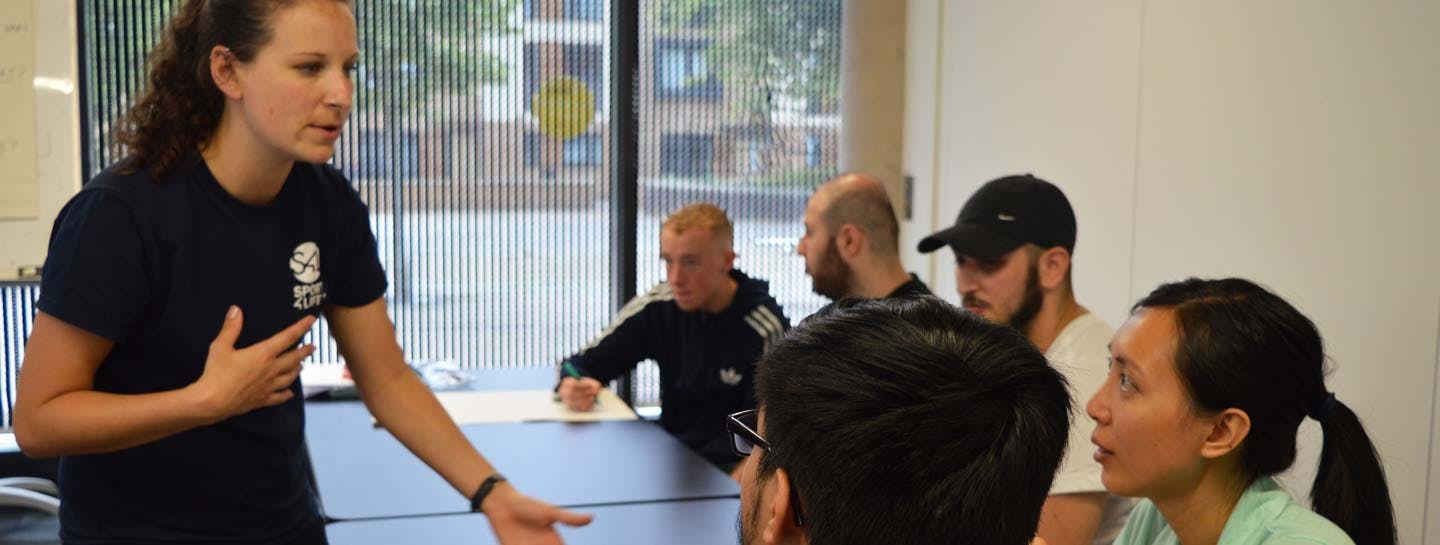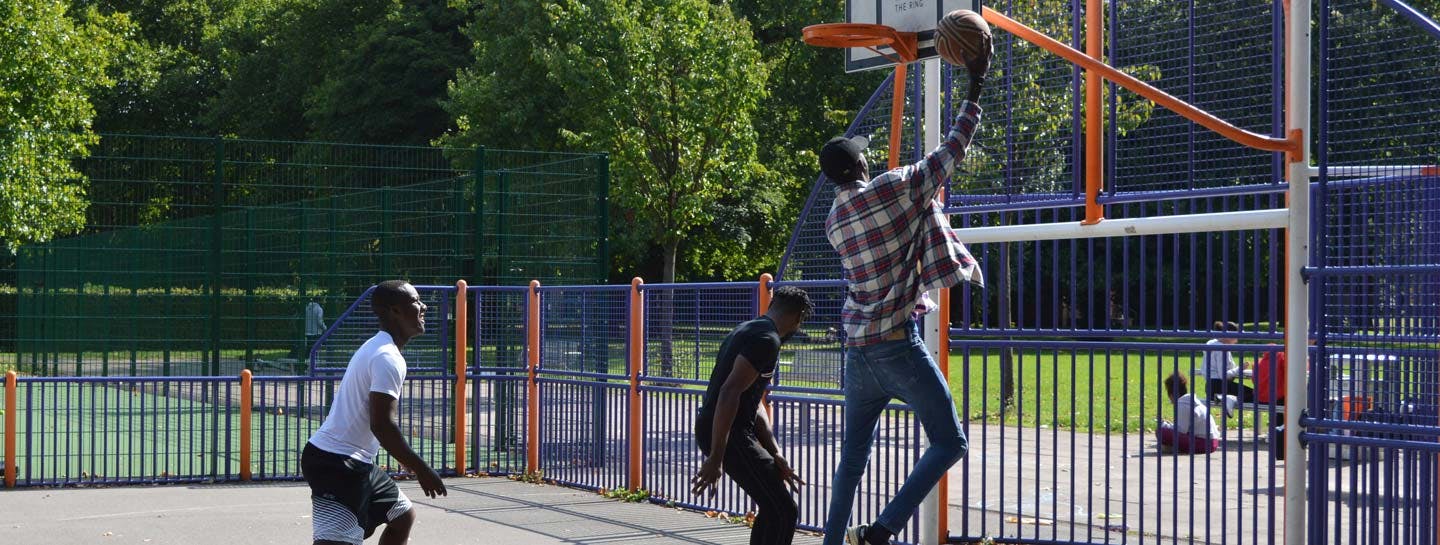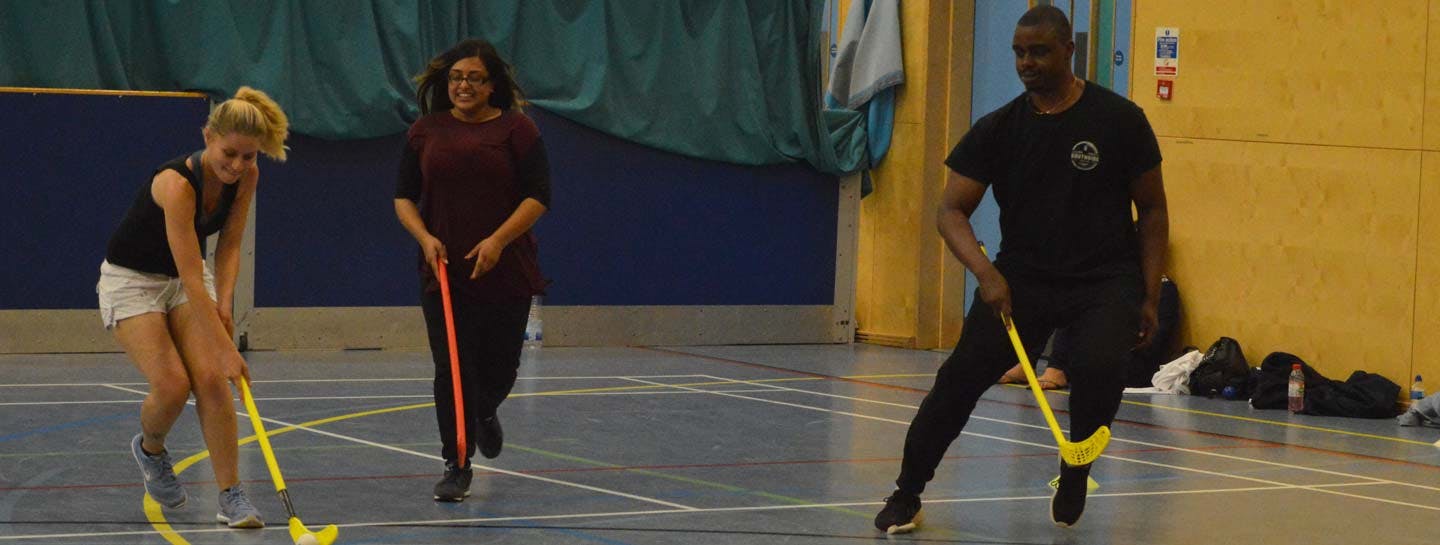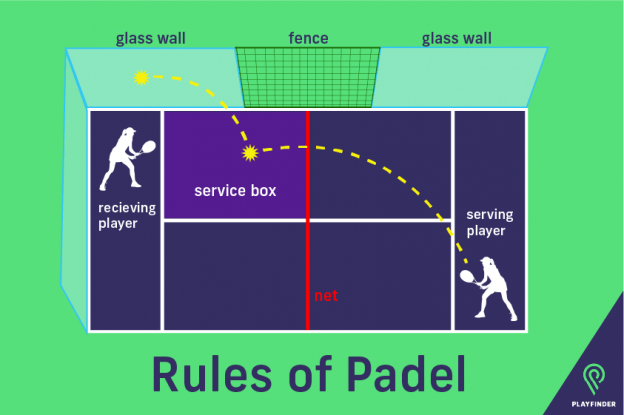Humans of Grassroots Sport | Tom Clarke-Forrest
18 January 2019 • By - Will Chrimes
Read time 3 minutes
We chatted with Sport 4 Life founder Tom Clarke-Forrest about how sport acts as a conduit, vehicle and tool for social change in Birmingham.
 Sport 4 Life UK came into the world in 2006 thanks to Tom Clarke-Forrest’s ambition to combine his passions for sport, young people, the city of Birmingham and entrepreneurship, to give back in local communities.
Sport 4 Life UK came into the world in 2006 thanks to Tom Clarke-Forrest’s ambition to combine his passions for sport, young people, the city of Birmingham and entrepreneurship, to give back in local communities.
In the early stages, the organisation delivered participatory and diversionary activities to keep young people positively engaged, and away from trouble on the streets. However, over the last decade, Sport 4 Life has evolved and shifted its focus towards meaningful and life-changing impact through employability and key life skills, but sport has remained as the conduit, vehicle and tool for change.
Living in some of the most deprived wards in the UK makes it very likely for young people to leave school without a qualification. Young people without a Level 2 qualification are over twice as likely to become NEET (not in employment, education or training) than those who do. This leaves young people with limited opportunities in life (Birmingham has the highest youth unemployment amongst core cities in the UK at 10.1% – over double the UK average). This significantly increases the chances of these young people becoming welfare dependent – with long periods of unemployment making young people eight times more likely to become NEET again.
Sport 4 Life believes that sport is the most powerful tool to drive through social change with its young people, and it does this through two key programmes, working with 12 to 29 year olds.
Sport 4 Life is proud to provide the opportunity for young people aged 12 to 29 to prepare for, and move into, sustained employment, education or training, by improving their employability and key life skills, through its sports-themed personal development services.

Sport is used both as an engagement tool (to encourage participants to get involved, increase their wellbeing, and find out more about other services on offer) and a learning platform (to develop key life skills that sport can teach).
Its work with 12 to 18 year olds is a strategic and proactive intervention, tackling the issue at source, preventing them from becoming NEET in the future by developing key life skills (motivation, self-esteem, communication, behaviour, resilience and teamwork). Activities include accredited qualifications (e.g. Sports Leaders UK), youth-led social action, structure sport sessions and one-to-one mentoring.

And its work with 18 to 29 year olds is for those who are NEET, providing them with tailored support to progress into sustained employment, education or training. Activities also include accredited qualifications, social action, structured sport sessions and one-to-one mentoring, but also formal mock interview and employability workshops (e.g. CV writing).
The results of these interventions is impressive and evident – with transparent, audited, valid and reliable impact clearly reported. In 2017/18 alone, Sport 4 Life supported 476 young people to achieve a combined 877 outcomes. 322 young people transformed at least one key life skill, 249 progressed from NEET to EET (re-engaged with employment, education or training), 126 achieved a sustained job outcome, and 306 gained at least one accredited qualification.

As Sport 4 Life UK Founder and CEO, Tom Clarke-Forrest is proud of the organisation’s impact over the last 12 years, but is adamant that there’s much more work and learning to do: “Youth unemployment continues to be a huge societal issue for young people, especially those living in disadvantaged communities, and those who lack the required qualifications and life skills to enter into, and succeed in, the workplace. We remain committed to supporting young people, including those furthest away from the job market, using sport as the vehicle. We’re continuing to develop our delivery model to provide a targeted and tailored support service, increasing our mentoring-based intervention, and ensuring we’re guided by impact and what works. Here’s to 2019!”




